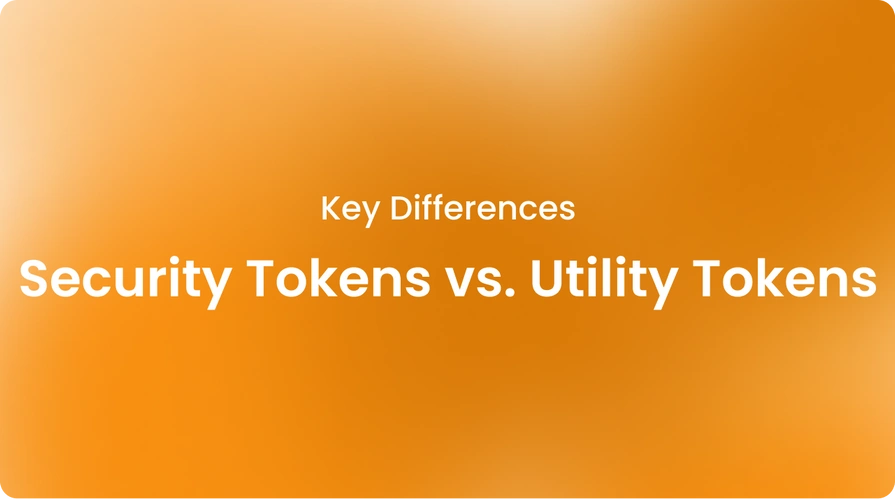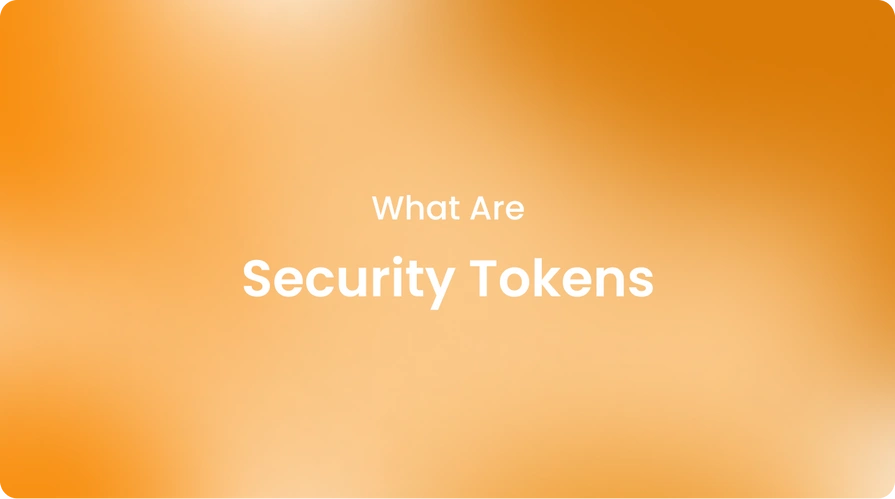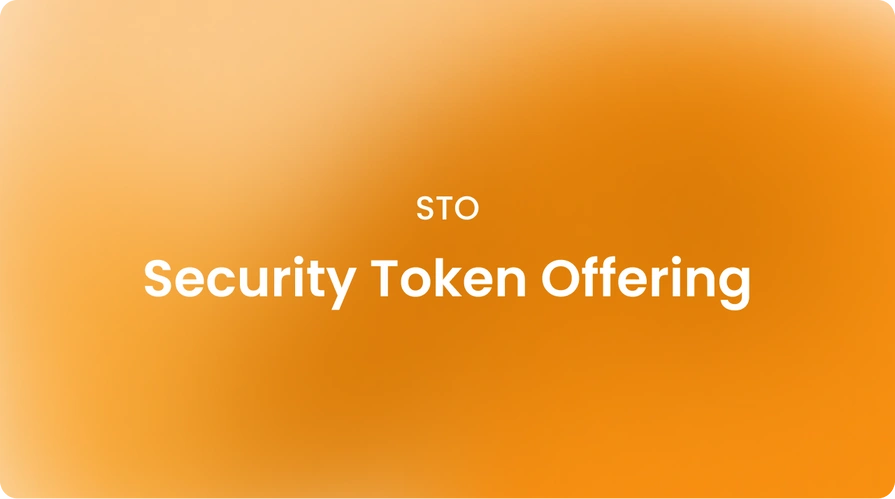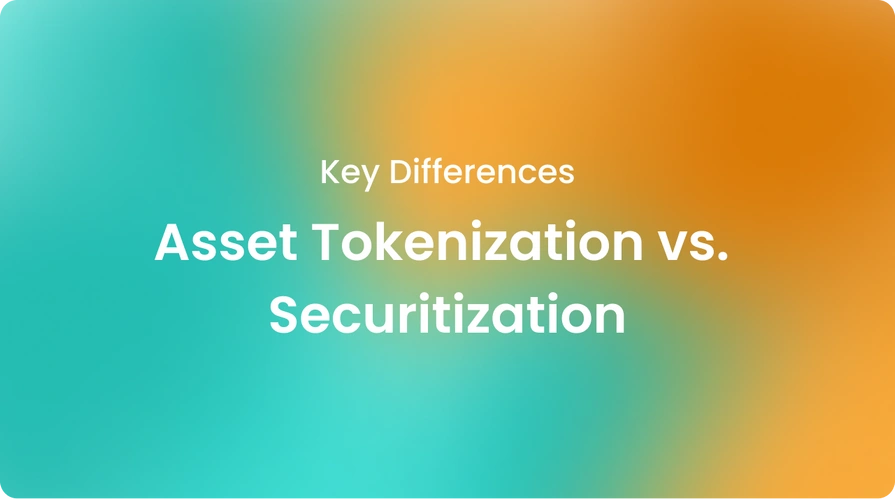|crypto, knowledgehub
Key Differences: Security Tokens vs. Utility Tokens

The rise of blockchain technology has enabled new ways of raising capital through digital assets known as tokens. There are two main types of tokens: security tokens and utility tokens. However, many people struggle to understand the key differences between these tokenized assets.
Join us in this article as we aim to provide a comprehensive guide on security tokens vs utility tokens by exploring their main functions, key benefits, roles, examples, and issues. Let’s start with security tokens!
What are security tokens? How does a security token work?
Security tokens are digitized versions of traditional securities like stocks, bonds, and fund units. They grant crypto token holders ownership rights and financial entitlements akin to those of traditional securities.
For example, a security token could represent a share of stock in a company, entitling the holder to dividend payments and voting rights.
Blockchain-based exchanges, or peer-to-peer markets, issue and trade security tokens. Real-world assets back the tokens, and a distributed ledger records ownership for transparency.
Cryptobunq offers custody and wallet and crypto exchange API that allow companies to issue tokenized securities on top of blockchain infrastructure while complying with securities regulations. It is a one-stop-shop crypto service provider in this aspect.
The role of security tokens
Security tokens serve two main purposes: to represent traditional securities in digital form and to issue new types of securities via blockchain. By issuing tokens that trade like equities, private companies can raise capital from the public.
Additionally, fractional ownership on the blockchain makes traditionally illiquid assets, such as real estate or fine art, easily divisible and liquid. Security tokens aim to modernize capital markets and lower the barrier to investment.
Make sure to check out “Real estate tokenization” and “NFT” to learn more about traditionally illiquid assets. You can also check out “Asset tokenizations vs. securitization," "STO," and “Tokenized payment” to broaden your knowledge!
Benefits, issues, and challenges of security tokens
Some key advantages of security tokens include enhanced liquidity, fractional ownership of assets, global accessibility of markets, programmable dividends and payments, automated compliance, and distributed control through decentralization.
Security tokens issued on blockchain gain the benefits of speed, transparency, and reduced costs while maintaining legal protections for investors.
While promising vast opportunities, security tokens also present challenges around regulatory compliance, custody of digital assets, and infrastructure maturity. Regulators are still figuring out how to apply existing securities laws to tokenized assets.
Additionally, hacking and compliance risks may undermine trust for those new to digital investments. The industry is rapidly evolving, but security tokens require solutions to ensure they are as safe and regulated as traditional securities.
What is an example of a security token?
Income-generating U.S. real estate assets are backed by RealT, a security token. Its goal is to tokenize traditional real estate investing so that it is accessible to individual investors. RealT tokens are ERC20 tokens that provide investors with cash flow distribution, appreciation potential, and voting rights.
With the capital raised, the company purchases real estate, and token holders receive a share of the rental income in the form of a quarterly dividend-like payment. RealT demonstrates how security tokens can represent real-world assets.
What are utility tokens? How does a utility token work?
Utility tokens are not securities and hold no intrinsic value. You can redeem these crypto tokens as vouchers or coupons to gain access to a company's product or service.
Most utility tokens emerge during initial coin offerings to help fund the development of a blockchain-based platform or network before it launches. Unlike security tokens, they do not provide ownership to the issuing entity.
A utility token works as a unit of exchange within a specific ecosystem. For instance, an advertising platform may require a token to buy ad space or services on their network.
Customers purchase these tokens with fiat currency or other cryptocurrencies, then spend them as needed. Utility tokens aim to reward early adopters and allow network users to take part in the project's growth.
The roles of utility tokens
Utility tokens serve to finance the development of blockchain networks or applications by creating demand from users in the initial stages. They also aim to incentivize community participation and reward early adopters by granting token holders access to certain features on the platform before it launches.
As the network effect grows, the utility tokens derive value from increased project adoption and use within the target ecosystem.
Benefits, issues, and challenges of utility tokens
Some of the key benefits of utility tokens include:
- Providing financing for new networks or protocols.
- Incentivizing participation in the project pre-launch.
- Increasing token demand and value over time
- Helping build a user base for blockchain applications and services.
- If successful, utility tokens could appreciate significantly as projects gain traction and users.
The challenges of utility tokens include:
- Lack of oversight led to many fraudulent ICOs.
- Unclear regulatory status leaves projects in a gray area.
- If a few hold the majority of the tokens, there could be centralization risks.
- Rely on project adoption or success for the token to have utility and hold value long-term.
- Most also do not provide real ownership rights and function more like traditional currencies within a limited ecosystem.
What is an example of a utility token?
Filecoin is the native token of the Filecoin blockchain-based distributed storage network. It allows users to rent space on networked storage devices around the world or provide storage themselves, earning FIL tokens as payment.
It aims to decentralize storage for data with its global marketplace for storage, retrieval, and sharing, secured by a proof-of-replication concept. It demonstrates how utility tokens power decentralized networks and protocols.
What is the difference between a utility token and a security token?
The two primary differences between a security token vs utility token are purpose and investment rights. Security tokens represent ownership in an asset or company and provide rights like dividends, governance, or profit sharing.
On the other hand, utility tokens grant access or usage benefits within a specific network or platform, but do not entitle holders to ownership or profits.
In summary, traditional securities regulate security tokens, while utility tokens, if not marketed as investment contracts, are generally unregulated. Liquidity also varies greatly between the two types.
The bottom line
Security tokens represent regulated investment assets or debt, while utility tokens provide access to platforms and networks but offer no shareholder rights or profits.
Understanding these important distinctions between security tokens and utility tokens will help both businesses and investors navigate the complex landscape of tokenization emerging alongside decentralized technologies.
With the continued evolution of compliant infrastructure and coordination among regulators worldwide, the potential of both security and utility tokens to reshape capital markets is vast.
Companies like Cryptobunq are leading this charge by offering services to power the security token economy, including crypto checkout and invoicing, tokenization, batch crypto payments, node as a service, and more solutions.
CBQ is a one-stop shop helping businesses tokenize, issue, custody, and trade digital securities. You can check out our case studies to learn more about our expertise in Web3 and blockchain technology, and contact us to grow your business in the digital realm!













